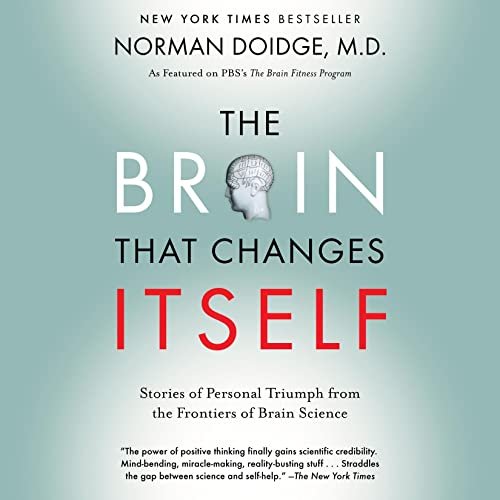Activate Your Inner Genius: The Neuroscience of Optimal Performance and Productivity
Picture this: a supercomputer, more advanced than any technology, nestled right inside your head. Yea, it’s easy to forget our brains are that powerful! At WorkPlayRefresh, we're all about tapping into your brain’s boundless potential, transforming your everyday productivity into sustainable peak performance.
Ready to upgrade your brain's software?! Let's dive into the realm of neuroscience and unlock the secrets to maximizing your brainpower.
On the Agenda:
Understanding the Brain’s Role in Productivity
Maximizing Cognitive Functions for Productivity
Impact of Lifestyle on Brain Performance
Neuroscience Productivity Hacks for Your Routine
Conclusion
FAQs
Understanding the Brain’s Role in Productivity
The Brain's Anatomy and Performance
Deep within the intricate maze of your mind lies the prefrontal cortex, the mastermind of productivity, directing your focus, decision-making, and goal-setting. Another critical area of the brain responsible for sustainable peak performance is the limbic system, which governs emotions and motivation. These areas of your mind work in balance to achieve a flow state, where productivity feels effortless and engaging.
Neuroplasticity: The Art of Learning New Skills
Neuroplasticity is your brain's ability to rewire itself based on experiences and learning. This adaptability means you can train your brain to be more efficient and effective, leading to sustainable peak performance. Neuroplasticity is at the core of learning new skills, our brain's remarkable ability to rewire itself. We can reshape our brains through targeted practices and mindfulness, enhancing focus and decision-making skills. This is why, at WorkPlayRefresh, we champion a mindset of continuous learning.
THE BRAIN THAT CHANGES ITSELF
Psychiatrist and psychoanalyst Norman Doidge, MD, traveled the country to meet both the brilliant scientists championing neuroplasticity and the people whose lives they've transformed - people whose mental limitations or brain damage were seen as unalterable.
Balancing Brain Chemicals for Sustainable Performance
Balancing brain chemicals is essential for sustainable performance, as it directly influences motivation, mood, and attention. Here's how to naturally maintain this balance, focusing on key neurotransmitters like dopamine, serotonin, and norepinephrine:
1. Dopamine - The Motivation Molecule
Set and Achieve Small Goals: Dopamine levels increase when we anticipate a reward or achieve a goal. By setting and accomplishing small, manageable tasks, you can create a steady stream of dopamine, keeping motivation high.
Stay Physically Active: Regular exercise boosts dopamine production. Activities like running, cycling, or even a brisk walk can lead to increased levels of this neurotransmitter.
Healthy Diet: Foods rich in tyrosine (like almonds, bananas, and avocados) can boost dopamine levels. This amino acid is a building block of dopamine.
2. Serotonin - The Mood Stabilizer
Sunlight and Exercise: Exposure to sunlight and regular exercise can increase serotonin levels, improving mood and overall sense of well-being.
Mindfulness and Meditation: Practices like yoga, meditation, and mindfulness can increase serotonin production, which helps regulate mood and reduce stress.
Diet Considerations: A diet rich in omega-3s can turbocharge your cognitive functions. Further, foods rich in tryptophan (like turkey, eggs, and cheese) can help the body produce more serotonin.
3. Norepinephrine - The Focus Factor
Stress Management: While some stress can increase norepinephrine for better focus, chronic stress can deplete it. Techniques like deep breathing, meditation, or even short breaks during work can help manage stress levels. Effective stress management is crucial for maintaining peak brain performance. Techniques like breathing exercises and emotional regulation strategies can help keep your brain in its optimal state.
Sleep Hygiene: Let's not forget sleep – essential for memory consolidation and brain detoxification. Adequate sleep helps regulate norepinephrine levels. Establishing a regular sleep schedule and ensuring a restful sleep environment can optimize its production. More on The Science of Sleep and Performance.
Balancing these chemicals naturally can significantly enhance your productivity. Alex Korb's “The Upward Spiral” offers insights into this balance.
Neuroscience Productivity Hacks for Your Routine
Attention Management: Mastering focus is essential in today's distraction-filled world. Techniques like controlled breathing and structured breaks can significantly enhance focus. Harvard research (Harvard Gazette) shows how these practices can change your brain to improve concentration and cognitive abilities. Daily meditation practices are proven to reduce stress and improve cognitive flexibility. Embrace mindfulness as a key tool in your productivity arsenal.
Science-Backed Morning Routines: Start your day with a brain-boosting routine: a nutritious breakfast, exercise to activate your neurons, and mindfulness practices to set your mental stage.
Restorative Sleep: Engage in a relaxing bedtime routine to signal to your brain that it's time to wind down. Avoid screens and opt for calming activities like reading or listening to soothing music. Quality sleep is crucial for brain health and function, as it's the time when your brain processes information and rejuvenates (Matthew Walker's “Why We Sleep”).
Optimizing Your Work Environment: Create a space that inspires productivity. Use color psychology, ergonomic furniture, and natural light to transform your workspace into a productivity haven.
Maximizing Cognitive Functions for Productivity
Techniques to Enhance Focus and Improve Memory
Have you tried aligning tasks with your ultradian rhythms? Ok so, first identify your personal energy peaks and troughs throughout the day, typically in 90 to 120-minute cycles. Schedule demanding, high-focus tasks like critical thinking or creative work during your peak energy times. During lower energy periods, handle less intensive tasks or take breaks to align with your body's natural energy dips. This practice enhances focus during high-energy times and promotes overall well-being by respecting your body's natural rhythms.
Memory and learning are key to productivity. Techniques like mnemonic devices and spaced repetition systems can significantly boost your memory, making learning more efficient and effective.These methods are like personal trainers for your brain, designed to streamline how you process information, making 'brain work' feel like play.
The Future of Cognitive Enhancement: Nootropics and Brain Stimulation
Nootropics and brain stimulation gadgets might sound futuristic, but they're increasingly popular. While research is ongoing, these tools show promise in amplifying cognitive functions.
Understanding the neural networks involved in optimal productivity and performance is like having a roadmap of the brain's functioning. This knowledge empowers us to intentionally redesign our daily routines, maximizing our potential for success while ensuring that our work habits are sustainable and aligned with our mind's natural rhythms.
BOOK REC
In Peak Performance, Brad Stulberg, a former McKinsey and Company consultant and writer who covers health and the science of human performance, and Steve Magness, a performance scientist and coach of Olympic athletes, team up to demystify these practices and demonstrate how everyone can achieve their best.
FAQs
-
Achieving a flow state for optimal productivity involves three key steps. First, create an environment free from distractions, where you can focus deeply on the task at hand. Then, select a task that is challenging yet achievable, which engages your skills and interest. Finally, set clear, short-term goals for the task, providing a structure that helps maintain focus and gives a sense of progress, keeping you immersed in the activity. This approach encourages a deep engagement in the work, leading to heightened productivity and a sense of fulfillment.
-
Foods rich in omega-3 fatty acids, antioxidants, and vitamins, such as fish, nuts, berries, and leafy greens, are excellent for cognitive enhancement.
-
Yes, regular exercise boosts blood flow to the brain, enhances neurogenesis, and improves overall brain health and cognitive function.
-
Most adults require 7-9 hours of sleep per night for optimal brain function, though individual needs may vary.
We may earn commissions from products mentioned. Your support helps us provide valuable content.





